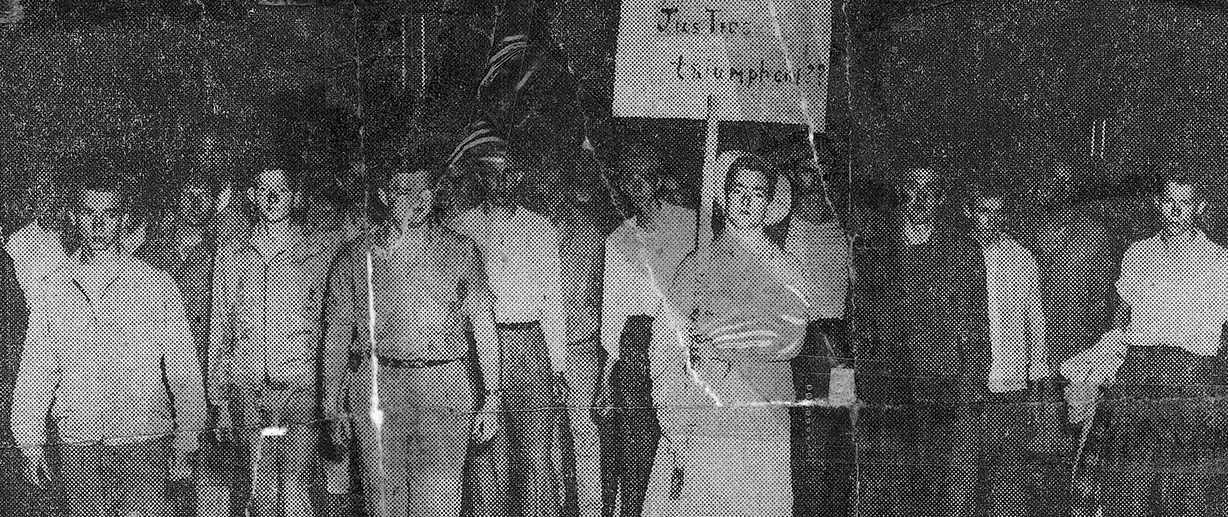EDITOR’S NOTE: In May, a video capturing George Floyd’s death went viral leading to outrage and demonstrations around a globe beset by a pandemic. Deep-seated issues of race and social justice rose to the surface, and organizations — from major car manufacturers and cosmetics companies to soda conglomerates and professional athletics leagues — began issuing statements. Many Wofford students and alumni challenged the campus community to do the same, reaffirming the college’s commitment to social justice and agreeing to make greater strides in equity and inclusion. Dr. Will Gravely ’61 was set to receive an honorary degree from the college in May for his commitment to scholarship on Methodist abolitionists and the truth behind South Carolina’s last lynching. I wanted to talk with him about this time in our country’s history and his thoughts on the current student activist movement.
WILL GRAVELY ’61 has spent much of his life researching racism in the United States, including how all of the defendants brought to trial after what’s considered South Carolina’s last racially motivated lynching were acquitted despite 26 men confessing to the crime.
Gravely, who is white, grew up in Pickens, S.C. He has memories of playing with a Black boy until both of their parents felt it would be best if they stopped being playmates. As a teenager, he was once berated for referring to a Black deliveryman at his high school as a gentleman.
When Gravely enrolled at Wofford, he met renowned professor of history Dr. Lewis P. Jones ’38. Jones once asked Gravely what he knew about the lynching of Willie Earle, a Black man jailed in Pickens in 1947. Gravely didn’t know anything at the time, but the story stuck with him, and he eventually spent decades researching the event before writing the book “They Stole Him Out the Jail,” which was published by the University of South Carolina Press in 2019. A network of Wofford faculty and alumni assisted his research over the years.
Although he didn’t begin his research into Willie Earle until 1978, Gravely became active in the Civil Rights Movement as a Wofford student. He tells the story of some classmates who went to Orangeburg, S.C., to participate in sit-ins, leaving campus shortly before the spring semester ended in 1961 after their rooms were trashed. Faculty members invited Gravely and a roommate to stay with them in the event they were the next targets because of their involvement with the S.C. Conference on Human Relations, which played a leading role in organizing the sit-ins.
After graduation, Gravely attended Drew Theological School and studied under Dr. George Kelsey, who taught the Rev. Dr. Martin Luther King Jr. at Morehouse College. Gravely now holds the distinction of professor emeritus at the University of Denver, and he’s watched the demonstrations and calls for racial justice from his Littleton, Colo., home with his wife.
“Isolated as we have been at our ages (78 and 81), we have not been directly aligned with or made any public stand within the Colorado and Denver downtown activism,” says Gravely. “It seemed to us that now is a time for reflection and listening, joined to our admiration for the courageous and determined protestors taking a stand. We enjoyed seeing the younger adults and students accompanying older African American community leaders. The spontaneous emergence of what we have been witnessing is impressive.”
While Gravely has spent much of his life studying racism, challenging himself and becoming an ally, he continues to listen and has a list of books to read to gain a better understanding of the current movement.
“I continue to learn from and observe and listen to Black voices and their allies of a new generation aware of the long struggle,” says Gravely. He is aware of the concern in recent months over the terms “systemic racism” and “white supremacy” in urgent calls for change. According to Gravely, “white supremacy and systemic racism are valuable categories that are not extreme (terms) if we are mature enough to engage our present reality.”
Gravely’s work has inspired current Wofford students. He visited campus in 2017 and participated in a conference focused on Earle’s killing and the launch of Wofford Trustee the Rev. Dr. Will Willimon’s book “Who Lynched Willie Earle: Preaching to Confront Racism.” Willimon is a 1968 Wofford graduate. Students learned that a historical marker outside of Greenville acknowledging Earle’s lynching was stolen. Campus Union, spearheaded by former president Drake McCormick ’18 and secretary Trey Williams ’19, began raising funds to replace the marker. They raised $3,141, and current students are finalizing plans with South Carolina legislators to identify a new location.
By Dudley Brown
